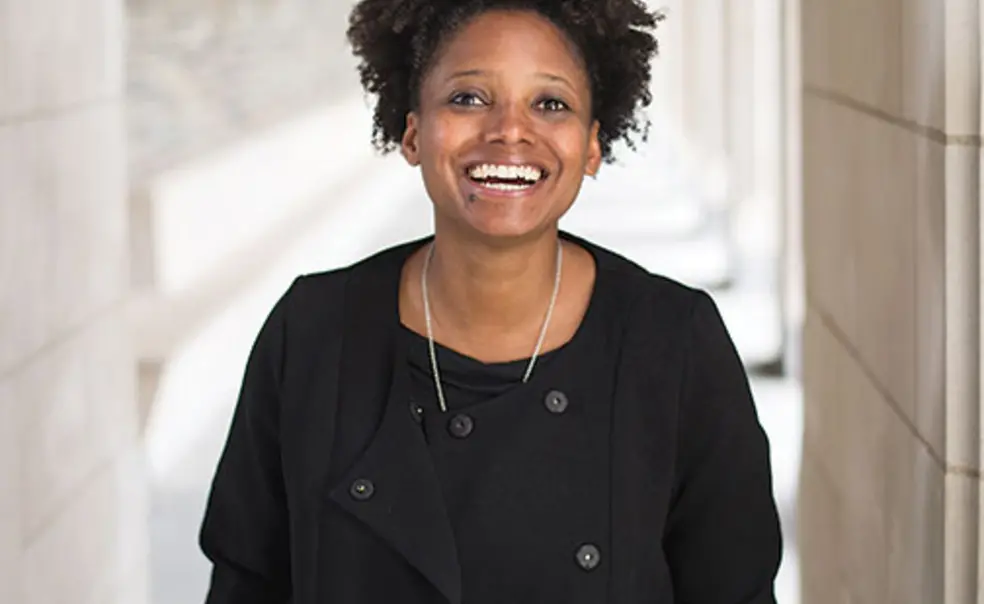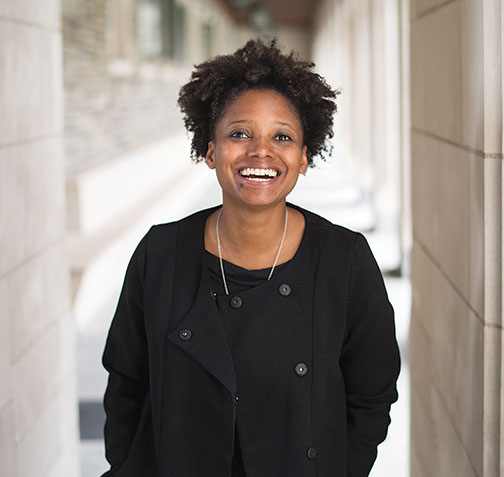Creative Writing: Poetry in Prose
Tracy K. Smith wrestles with race and religion in a memoir of her childhood
For most of her career as a poet, Tracy K. Smith has not written much about being African American. But in her new memoir, Ordinary Light, she says she is “happy to finally be stepping into those conversations publicly.”
A professor of creative writing at Princeton since 2005, Smith is known for her poetry’s wistful mood and evocative images. She published her first book, the award-winning The Body’s Question, at age 30, and went on to win the 2012 Pulitzer Prize in poetry for Life on Mars on her 40th birthday. Life on Mars is an elegy to her late father, an engineer who worked on the Hubble Space Telescope, but it also meditates on subjects ranging from black holes to David Bowie.
Smith’s memoir, her first book of prose, chronicles her childhood growing up in the 1970s and ’80s in a largely white suburb in northern California. The youngest of five children, Smith recalls a placid upbringing during which she spent hours immersed in the pages of Anne of Green Gables and listening to The King and I on a hi-fi reel-to-reel player with her father. The South, where her parents were raised, seemed far away, and “that distance felt like a safety net,” she told PAW.
She writes about a summer visit to her mother’s hometown of Leroy, Ala., and the indefinable fear she felt in her grandmother’s house, which she tried, in her mind, to keep separate from thoughts of “my parents as children of the South ... even if it forced me to steer clear of whole regions of the past for fear of catching a passing glimpse.”
“There were zones of history I was afraid to think about too long,” she says, because inhabiting them “would have meant my parents were affected by injustice, and it hurt me to think about that. Writing about that shifted the hurt into something that felt productive. Pain is fed by silence; pain grows on all the things we are unwilling to bring into language. Writing this book allowed me not just to figure that out, but to benefit from that.”
Smith writes about a playdate with a white girl who asks her, “Don’t you wish you were white?”
No. I was quite sure I didn’t. But sometimes I was made uncomfortable by my own ability to empathize so easily with whites, to submit to their scrutiny, to go out of my way to prove I — and, by extension, we — didn’t pose a threat. ... There’s always a place in the mind that feels different, distinct; not worse off or envious but simply aware of an extra thing that living in a world that loathes and fears us has necessitated we develop.
She also grapples with the role of faith in her life. Her mother is diagnosed with cancer as Smith is leaving home for Harvard. In the face of her illness, her mother deepens her religious belief while Smith feels herself moving away from the church and plunging into an exploration of her racial identity. She grows dreadlocks, begins attending meetings of the Black Students Association, and tears through the novels of Zora Neale Hurston and James Baldwin: “When we read Ralph Ellison’s Invisible Man, I’d felt, possibly for the first time, like I was capable of looking at racial injustice without blinking and of really listening, letting things unfold before me, jab at my heart, and kick my mind into motion.”
When her mother dies from cancer, Smith is 22 and just beginning to regard herself as a poet after getting involved with the Dark Room Collective, a group of African American writers. Now a mother herself — she has a 5-year-old daughter and 22-month-old twin boys with her husband, Raphael Allison — Smith has spent more than a decade trying to write about her mother in poems and essays. She and her mother “had different views about what was on the other side of this world,” she says. “Had she lived, we would have found a way to talk about all the things I couldn’t talk about because I was too young.”













No responses yet